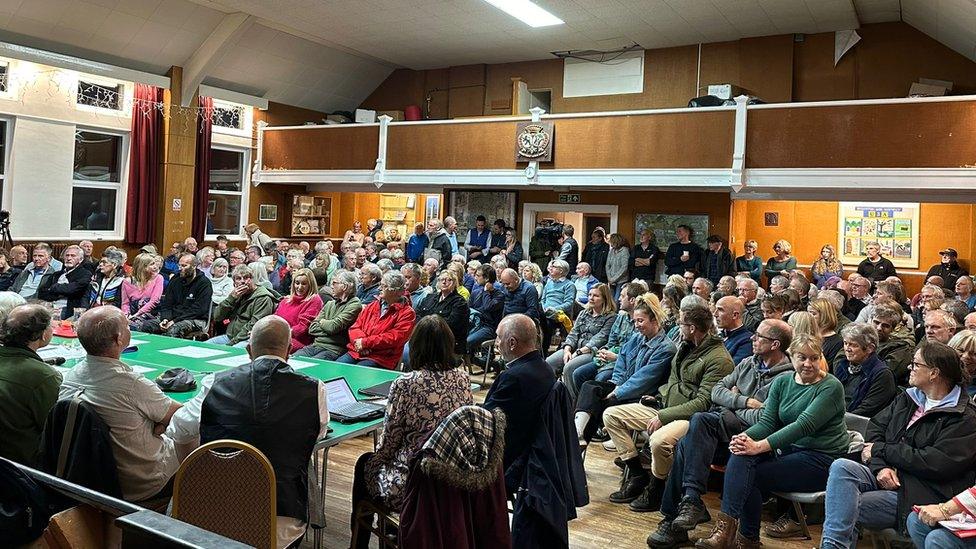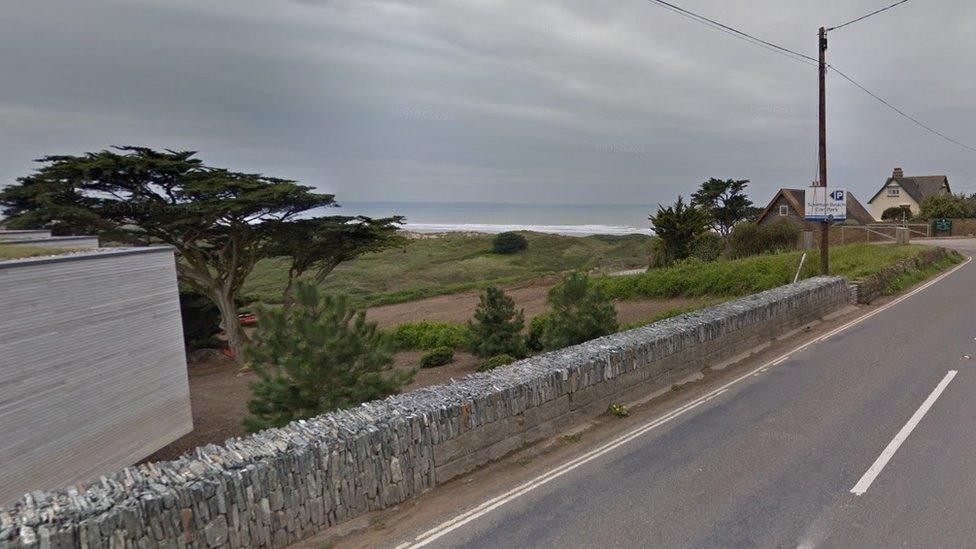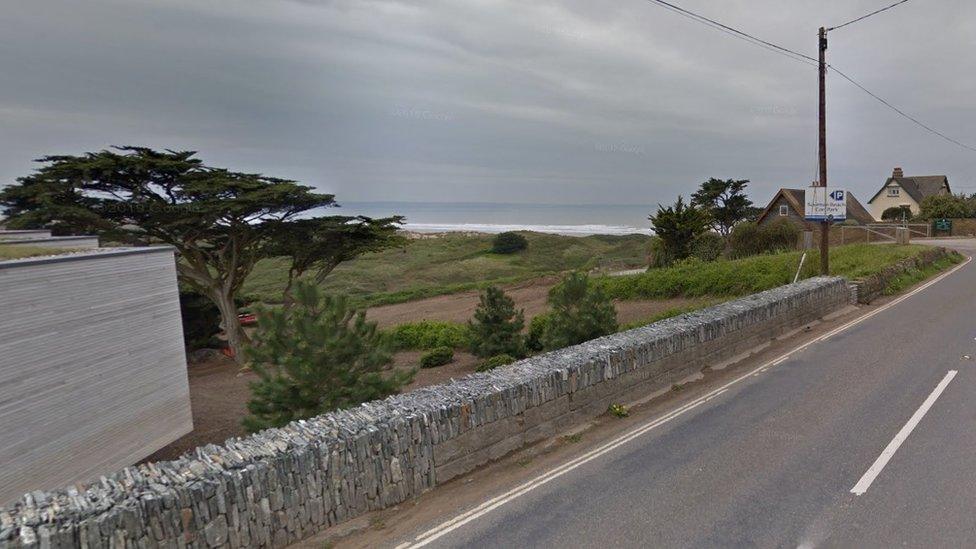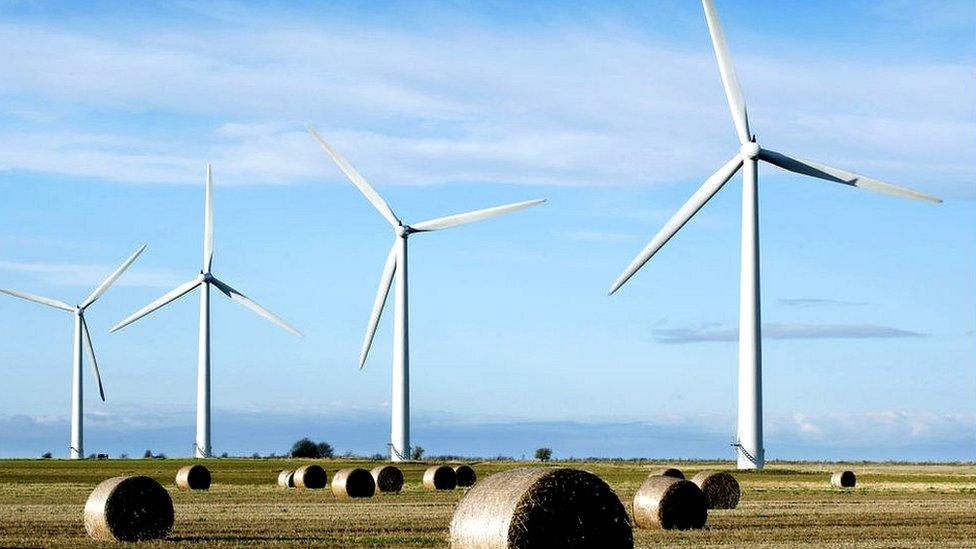Wind farm cable work in Braunton could be disastrous, say villagers
- Published

Many residents have said they are concerned the project will generate too much traffic
A floating wind farm off the north Devon coast could cause years of disruption, opponents say.
The White Cross Offshore Wind Farm is proposed to sit about 31 miles (50km) out to sea, but the connecting cables would come ashore near Braunton.
Villagers said the proposed cable route could clog roads, damage the landscape and be "disastrous" for businesses.
Flotation Energy, the company behind the project, said it had "fully considered" the concerns of residents.
According to plans submitted to North Devon Council, external, underground cables would be installed from Saunton Sands car park to a new substation at East Yelland.
The substation would then connect up to eight floating turbines, located in the Celtic Sea, to the national distribution network.
Saunton Sands is one of the South West's most popular beaches and is near to one of the largest sand dune systems in Britain.

The plans will see underground cables installed from Saunton Sands car park to a new substation at East Yelland
Many residents at a public meeting in Braunton on Tuesday said they were concerned about the potential environmental disturbance and increased traffic.
Resident Paula Ferris highlighted the potential risk to the North Devon Area of Outstanding Natural Beauty.
"They couldn't have chosen a worse site for landfall," she said.
Brian Gilbert, another resident, said the work would cause a "flow of lorries through the village".
Mike Ravensdale, the owner of Saunton Surf Hire, said the work could be "disastrous" for his business.
He said: "They are taking up 40% of the car park for at least a year, and if it runs over time, then that's another year of disruption."
'Working with communities'
Flotation Energy said the project would provide "clean renewable energy" and "create long term job prospects".
It said the cable route "minimises potential impacts on the environment" by avoiding conservation areas.
The firm said it planned to stagger work over a two-year period and minimise the use of lorries.
A spokesman said: "We recognise and understand the concerns from local stakeholders who may be impacted by our project and are committed to working with communities to ensure their voices and opinions are heard and fully considered."

Follow BBC News South West on Twitter, external, Facebook, external and Instagram, external. Send your story ideas to spotlight@bbc.co.uk, external
- Published27 September 2023

- Published5 September 2023

- Published3 October 2023